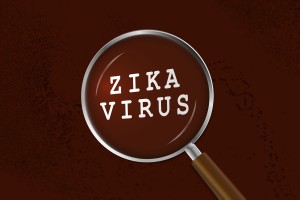Late last week, healthcare officials’ fears were realized when several local cases of the Zika virus were identified in Miami. This is the first time cases of the Zika infection in the U.S. haven’t been linked to South American travel. Infections are expected to increase in parts of the U.S. So, it’s important for all travel nurses, especially those currently working in Florida, to keep updated on the recent Zika news. Here’s what travel nurses should know:

The Zika virus has spread to Florida. Learn how you can protect yourself and your patients.
- Pregnant women should avoid travel to Miami: Earlier this spring, pregnant women were warned about traveling to South America due to the link between Zika infections in pregnant women and severe birth defects in their newborns. However, as a result of these new findings, the Centers for Disease Control and Prevention has expanded that travel ban to include the Wynwood neighborhood in downtown Miami. This is the first time the CDC has advised people not to travel to a place in the continental United States.
- The Zika virus can be sexually transmitted: Although only certain mosquitoes are responsible for most Zika cases, the infection can also be sexually transmitted. As a healthcare provider, you should caution both male and female patients who have recently traveled to Zika-affected areas to abstain from sexual intercourse for at least eight weeks. The virus has been known to remain in bodily fluids long after the symptoms are gone. If your patient is already pregnant and has recently traveled to Miami, you should advise her to get tested for Zika. This particular patient will also want to use condoms or avoid sex throughout the duration of her pregnancy.
- Prevention is key: If you or your patients are living in a Zika zone like Florida, you should take all necessary precautions. This includes staying indoors as much as possible, covering up, and wearing insect repellent such as Deet to prevent infection. If one of your patients does become infected, he or she will need to see a doctor right away. If a pregnant woman becomes infected, she will need to be carefully monitored throughout her pregnancy.
- Don’t panic: While the news seems grim, your patients don’t need to panic just yet. Only the Aedes aegypti and Aedes albopictus mosquitoes have been known to transmit the infection, and these mosquitoes must have bitten someone who’s infected in order to spread the virus to someone else. The CDC expected to see outbreaks of Zika in the U.S. where these types of mosquitoes are common. Florida is one of these areas. Fortunately, healthcare officials do not believe the outbreaks here will be as severe as the ones in South America.
To learn more about the latest Zika virus in Florida, you can visit the CDC’s website here.
Are you currently working in Florida as a travel nurse? If so, what steps are you taking to protect yourself and your patients?

